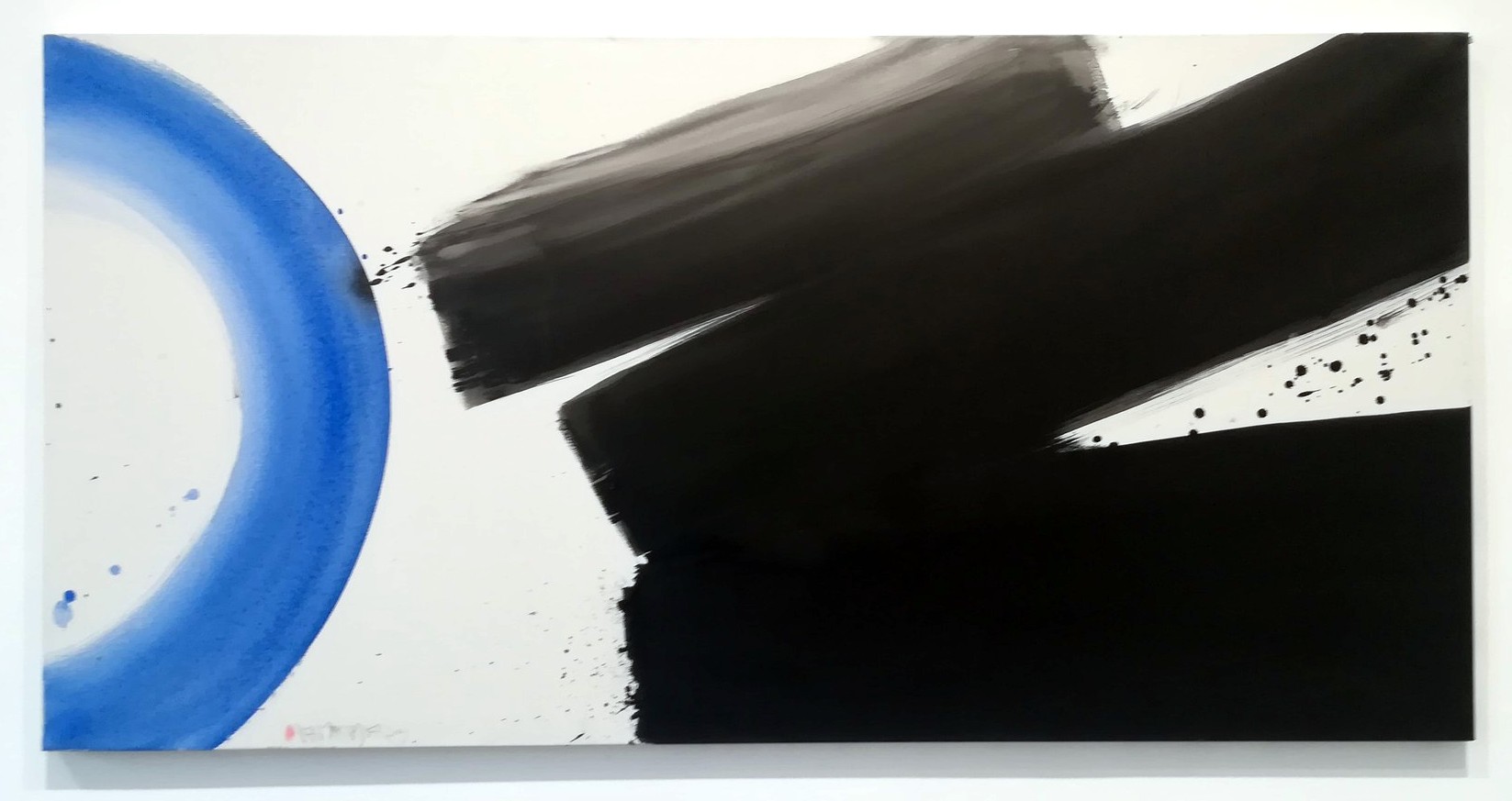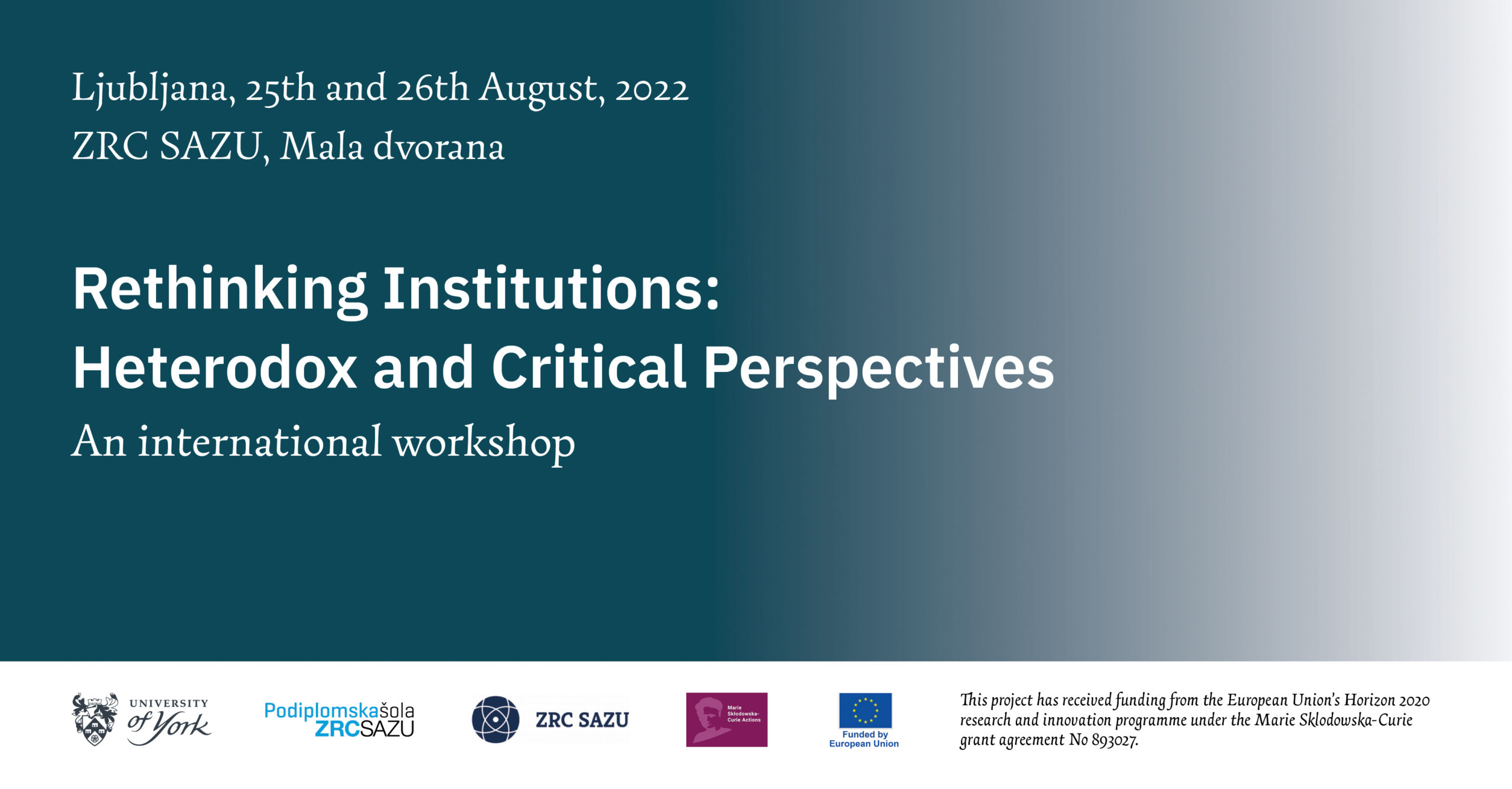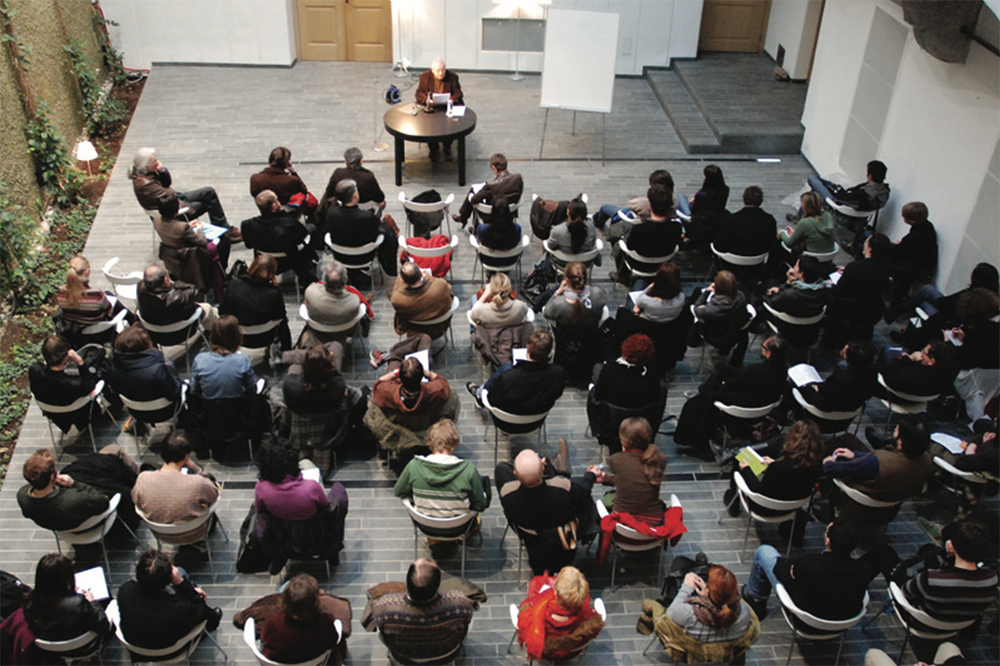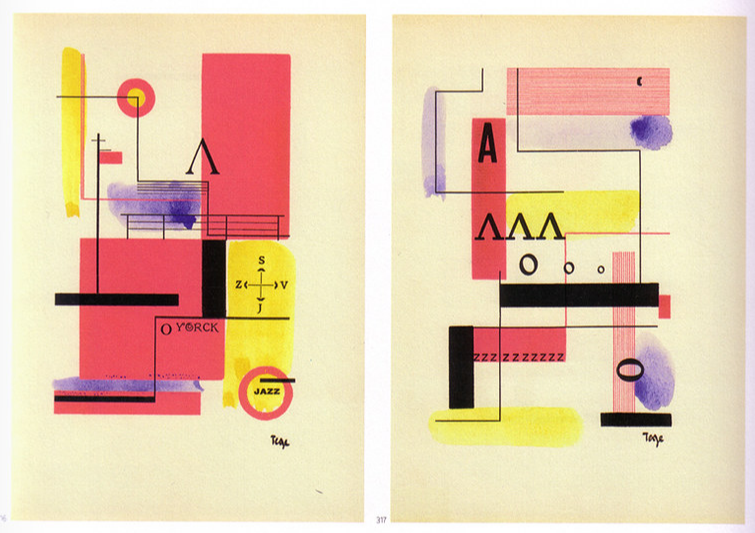Archives: 3 obvestila
Jan Nederveen Pieterse | Globalization Compare 1990–2022
The Postgraduate School ZRC SAZU (the ‘Literature in Context’ module) invites you to a guest lecture by Jan Nederveen Pieterse titled:
Globalization Compare 1990–2022
The lecture will be held in the English language on Thursday, 6 October 2022, at 3pm at Mala dvorana ZRC SAZU, Novi trg 4 (2nd floor) in Ljubljana.
Differences between 1990 and 2020 – geopolitical, geoeconomic and cultural – are staggering. How do leading themes of 1990s social science – such as globalization, convergence, modernity, nationalism – fare thirty years later? How was ‘culture’ embedded in 1990s political economy and what are interactions nowadays? This talk revisits the paper ‘Global Culture, 1990, 2020’ (Theory, Culture & Society 37.7–8 [2020]), a wide angle of a kind that snapshot assessments lack. Let’s add these questions: How do the differences between hegemonic ascent during the 1990s and hegemonic decline since 2008 work out? If we factor in 2022, does expansive authoritarianism make a comeback, or is this just a blip? How do 1990s ‘culture wars’ compare with the 2010s and onward?
Jan Nederveen Pieterse is Suzanne and Duncan Mellichamp Chair and Distinguished Professor of Global Studies and Sociology at the University of California, Santa Barbara. His current project is a comparative study of capitalisms and varieties of market economies with a focus on inequality. His most recent books include Connectivity and Global Studies (Palgrave Macmillan, 2021), Globalization and Culture: Fourth Edition (Rowman & Littlefield, 2019), and Multipolar Globalization (Routledge, 2018). His books have been translated in Italian, Spanish, Portuguese, Danish, Japanese, Korean and Chinese.
[Picture by Leon Zakrajšek (source)]
International workshop: Rethinking Institutions: Heterodox and Critical Perspectives
Rethinking Institutions: Heterodox and Critical Perspectives
An international workshop
Ljubljana, 25th and 26th August, 2022
ZRC SAZU
Several questions arise from so-called new institutionalisms. Is social theory really to be amalgamated as an “ontology of optimization”? A discipline of assembling historical and empirical data for the purposes of modelling individual or group behaviour in accordance with a preestablished set of rules? Further, is it adequate to directly ascend to deontological issues of objects/subjects by relegating the social strata to incentives, rules and rationality principle without coming on par with pertaining methodological and conceptual objections?
How should we commit to these objections? What if we first posited institutions as a thought-construction, abstract objective forms that lead a life of their own, both subjectively and objectively? Advanced in this way they become structuring/structured objects of perceived actuality, shaping our symbolic realms and imaginaries, in the end producing a determinate social reality. In such a conceptual dispositive, rational-choice intersubjectivity moves to the background and the self as a mediating/mediated entity of human agency comes to the forefront in constructing and reproducing (historical) institutional frameworks. Furthermore, should we also address these frameworks in a non-substantialist and a-subjective manner, i.e. as purely objective frameworks devoid of any subjectivity?
Can Critical theory, by utilizing its vast underlying philosophical currents of German Idealism, Marx and materialist thought, Freud and contemporary psychoanalysis, provide a meta-theoretical discourse in determining the conceptual maturation of the notion Institution? Is it further still called upon to reflect on the conceptual unfolding and consequent truth(fullness)? This challenge would necessitate a discussion on the following issues: How do institutions conceptually emerge, what are their historical and material conditions, what are their modes of presentation and representation, what are they in essence and what forms do they acquire, how are they reflected in subject’ consciousnesses, what is the relation between human agency and institutional frameworks, etc? Can it transcend the analytical framework of rules, behaviour and coordination, by historically and ideologically deconstructing institutional structures and frameworks of contemporary societies?
The elucidation of these questions and the future articulation of answers already presuppose a materialist reorientation of institutions and their networks of individual and social significations. This undertaking aims to rearticulate the initial pathways brought by the originators of Institutionalist thought, The German Historical School and American Economic Institutionalism, towards a critical theory of institutions, giving definite answers to the problems of institutional subjectivity, normativity, historicity, change, etc.
Relevant topics include, but are not limited to, the following:
- Institutions and the German tradition (The historical school, Idealism, Marx and Marxist thought, Weber, Critical theory, etc.)
- Institutions in the discourse of contemporary French philosophy/sociology
- Institutions in psychoanalysis
- Institutional economics of Thorstein Veblen
- Epistemology of institutional frameworks
- Concept of institutional change, subjectivity / a-subjectivity
Rethinking Institutions: Heterodox and Critical Perspectives
An international workshop
Ljubljana, 25th and 26th August, 2022
Provisional Programme
Thursday 25th August – ZRC SAZU
Introduction (9.30)
Uroš Kranjc (University of York)
An Introduction – Institutions and Society
Session 1 (10.00 – 11.30) – Philosophy and institutions
Oliver Feltham (American University of Paris)
Institution or Organization? A Humean reply to Nunes
Uroš Kranjc (University of York)
Can Institutions be Thought as Multiplicities – Marx, Veblen, Badiou
Coffee Break
Session 2 (12.00 – 14.00) – Sociological and political roots of contemporary institutions
Rudi Rizman (University of Ljubljana & University of Bologna)
What is Left of Institutional Regulation and Democracy in the Time of Neoliberal Hegemony?
Tomaž Mastnak (ZRC SAZU)
Is Economic Power an Institution? The Limits of August Ludwig von Rochau’s Redefinition of Liberal Politics
Peter J. Verovšek (University of Sheffield)
A Critical Theory of Political Institutions:
Charting the Frankfurt School’s Shift from Social to Political Categories
Lunch
Friday 26th August – ZRC SAZU
Session 3 (9.00 – 12.00) – Psychoanalysis and institutions
Cindy Zeiher (University of Canterbury)
Psychoanalysis’ Slip of the Discourse
Mike Grimshaw (University of Canterbury)
Radical Theology and the ‘Weakening’ of Bourgeois Institutions
Jelica Šumič Riha (ZRC SAZU)
Sade or the Institution of the Right to Enjoyment
Lorenzo Chiesa (Newcastle University)
On Some Questions Prior to any Possible Treatment of Lacan’s Theory of Discourses as Political
Coffee Break
Session 4 (13.00 – 15.00) – Marx and the institutional dispositive
Carolina Alves (University of Cambridge)
Provisional: Marx’s Influence on Keynes Circle, Joan Robinson and Economic Institutions
Werner Bonefeld (University of York)
On Real Abstraction: Wealth, Suffering and Negation
Closing Remarks
Lunch
Workshop participants:
Carolina Alves
Carolina Alves is a Joan Robinson Research Fellow in Heterodox Economics at the University of Cambridge, Girton College, who specialises in Macroeconomics, International Finance, Marxian Economics and International Political Economy. Carolina is currently part of the Cambridge Social Ontology Group, and the Alternative Approaches to Economics Research Group – Faculty of Economics, Cambridge, and co-editor of The Developing Economics blog. She is also the co-founder of initiative Diversifying and Decolonising Economics (DEcon).
Werner Bonefeld
Werner Bonefeld lectures in Politics at the University of York. Research interests include political economy, Marxist social theory, and European Integration. He has been on the editorial board of Capital & Class and is on the editorial board of Common Sense. He is also on the Advisory Board of Historical Materialism. He has published in a number of journals, including Capital & Class, Common Sense, and Review of Radical Political Economy. His work has been translated into many languages, including German, Greek, Spanish, Italian and French.
Lorenzo Chiesa
Lorenzo Chiesa is Lecturer in Philosophy at Newcastle University (UK), where he serves as co-convenor of the Faculty Research Group in Critical Theory and Practice. He is also Visiting Professor at the socio-political philosophy programme of the European University at St Petersburg and teaches courses on philosophy and psychoanalysis at the Freud Museum, London. His general field of expertise is post-Kantian European philosophy. In particular, his research interests are in the area of Freudian and Lacanian theory, 20th and 21st century French philosophy, French and Italian bio-political thought, and Marxist theory.
Oliver Feltham
is Professor for Philosophy at the American University in Paris. Specializing in critical theory and early modern philosophy, he has translated and written extensively on Alain Badiou, His recent work has also focused on psychoanalysis and Jacques Lacan. Recently he was also developing a counter-history of political action.
Mike Grimshaw
is Associate Professor in Sociology at University of Canterbury, New Zealand. He is a series editor for Radical Theologies (Palgrave Macmillan) and founding Co-editor of Continental Thought & Theory. Working at the intersections of radical & political theology, continental thought & critical social & cultural theory, his research interests arise from a critical engagement with the intersection of religious and cultural theory as applied to both New Zealand and a global context. In this he makes use of Continental thought and theory, and in particular the ‘weak thought’ arising from the work of Gianni Vattimo. His longstanding focus is on radical theology and philosophy and in particular the social, cultural and philosophical impact of the death of God.
Uroš Kranjc
Uroš Kranjc is a Marie Skłodowska-Curie postdoctoral fellow at the Department of Politics, University of York. His main research interests include epistemology of heterodox schools in economics, critique of political economy and contemporary French philosophy. His recent publications include “On the Notions of Police/State (of Situation): An Economic Perspective in Light of Hegel’s Philosophy of Right” (Critical Horizons, 2021) and “The discontinuity between value and price form: tracking the subtraction of the qualitative” (Evolutionary and Institutional Economics Review, 2021).
Tomaž Mastnak
Tomaž Mastnak is a sociologist, publicist and social and civic activist. He was a Director of Research at the Institute of Philosophy at the Center for Scientific Research at the Slovenian Academy of Sciences and Arts in Ljubljana. He holds a master’s degree from the Department of Philosophy at the Faculty of Philosophy, and a doctorate from the Department of Sociology. He authored a large number of articles and books (Crusading Peace, 2002, Hobbes’s Behemoth: Religion and Democracy, 2009, etc.)
Rudi Rizman
Rudi Rizman, a native of Slovenia, holds doctorates from both the University of Ljubljana and Harvard. He teaches sociology and political science at the University of Ljubljana and the University of Bologna and has lectured at numerous universities in Europe and the United States. He was head of the Research and Scientific Institute of the Faculty of Arts at Ljubljana 2003 – 2009. His main research interests are globalization, democracy, nationalism, and social theory.
Jelica Šumič Riha
Jelica Šumič Riha is the acting Dean of the Postgraduate School and a Senior Research Fellow at the Institute of Philosophy, both at Scientific Research Centre of Slovenian Academy of Sciences and Arts in Ljubljana. She was a visiting professor at the University of Essex (1994-1998); University Paris 8 (2003-2004), and has conducted seminars at the Collège international de philosophie in Paris. She has published a number of philosophical works, including Politik der Wahrheit (with Alain Badiou, Jacques Rancière, and Rado Riha; ed. Rado Riha; Turia + Kant, Vienna 1997); she has edited and contributed to an ontology on Universel, Singulier, Sujet (with Alain Badiou, et al.; Kimé, Paris 2000); Mutations of Ethics (Založba ZRC 2002), etc.
Peter J Verovšek
Dr. Peter J. Verovšek is a Lecturer (Assistant Professor) in Politics/International relations at the University of Sheffield. He studied Government (high honors) and German as a undergraduate at Dartmouth College (AB 2006, summa cum laude). He then conducted research on the continuing effects of the memories of World War II in the politics of the former Yugoslavia as a U.S. Fulbright Scholar (2006-07), before receiving his MA (2008), MPhil (2010) and PhD (2013) in Political Science from Yale University.
Cindy Zeiher
Cindy Zeiher is is senior lecturer at the University of Canterbury, New Zealand were she teaches critical theory. Her writings explore Freudian-Lacanian interventions and interpretations concerning contemporary questions of ontology. She is currently working on a book which interrogates Vladimir Janklevitch’s radical ‘refusal’ of politics from the perspective of Lacan’s theory of the speech-act. Cindy is co-editor of CT&T: Continental Thought and Theory and is currently training as a Lacanian psychoanalyst.
PhD thesis presentation
On Wednesday, 22 June 2022, at 15:00, Gavin Keeney, PhD will give a presentation of his PhD thesis topic with the working title:
W4W1.
He will be working on his dissertation under the supervision of Prof. Jelica Šumič Riha on the module Transformation of Modern Thought – Philosophy, Psychoanalysis, Culture.
The event will take place in English in the ZRC meeting room, Novi trg 2, 1st floor, Ljubljana, in front of a jury: Assist. Prof. Rok Benčin, Prof. Marina Gržinić Mauhler, and Prof. Jelica Šumič Riha, PhD. Thesis summary.
Participation of other students in such presentations is compulsory in the 1st and 2nd year of the Research Seminar I and II.
The event is public, kindly invited all interested!
Aina Vidal-Pérez | Global Mediterranean: Representations of the Coast in Crisis in the Contemporary Novel (1990–2020)
Postgraduate School ZRC SAZU invites you to a public lecture at the Literature in context doctoral module by Aina Vidal-Pérez:
Global Mediterranean: Representations of the Coast in Crisis in the Contemporary Novel (1990–2020).
The lecture in English language will be on Thursday, 26th of May 2022, at 2.30 P.M. at Mala Dvorana ZRC SAZU, Novi trg 4, 2nd floor, Ljubljana.
Despite the scarcity of critical studies on the matter, the Mediterranean Sea as a globalized and as such environmentally vulnerable space has gained significant attention in the field of the novel over the last three decades. Starting from a conception of the global novel as a critical framework, the talk will approach representations of the Mediterranean Sea as a space traversed by accelerated and overlapped crises. The sea will be addressed as a complex narrative environment concerned with multi-scale issues such as extractivism, deterritorialization, neocolonialism, cosmopolitanism, migration, mass tourism, state and global violence, and, in particular, the environmental crisis and the Anthropocene. Focusing on novels by Donna Leon, Rafael Chirbes, Zena el Khalil, and Ahmed Khaled Tawfik among others, the talk will carry out an analysis that considers, on the one hand, the narrative strategies arising from such tensions, and, on the other, the circulation of these narratives at different scales by considering both the Mediterranean and the novel as objects as well as agents of globalization.
Aina Vidal-Pérez is a PhD Candidate in the Humanities and Communication Doctoral Programme at the Open University of Catalunya. She holds a PhD Fellowship (FI 2019) of the Government of Catalonia, co-funded by the European Social Fund, and is a member of the Global Literary Studies Research Lab (GlobaLS-UOC); she is also on the team of the research project “The Novel as Global Form. Poetic Challenges and Cross-border Literary Circulation,” funded by the Spanish Ministry of Science and Innovation. Her PhD project is dedicated to narrative representations of the Mediterranean shore from a global perspective. In relation to this topic, her contribution to The Routledge Companion to Crime Fiction and Ecology is forthcoming in 2023.
Kindly invited!
Ljiljana Pajović Dujović | Social and cultural context of Montenegrin society through the prism of the traditional wedding practice
Postgraduate School ZRC SAZU invites you to a public lecture by prof. Ljiljana Pajović Dujović:
Social and cultural context of Montenegrin society through the prism of the traditional wedding practice.
The lecture in English language will be on Wednesday, 25th of May 2022, at 11. A.M. at Mala Dvorana ZRC SAZU, Novi trg 4, 2nd floor, Ljubljana.
The paper aims at emphasizing the importance of customs as one of significant elements of cultural identity. Due to a wide range of customs inherent in Montenegrin society and culture, we here focus on the customs relating to the organization of the nuptials ceremony, including all stages and rituals which follow. In order to comprehensively approach the analysis of wedding customs and grasp their importance, we have taken into consideration the comparison between traditional (patriarchal) and modern wedding practices, as well as the analysis of the orientation of values which pervade traditional practices at different levels of social and cultural development.
Keywords: traditional wedding practices, patriarchal culture, collectivist and individualist orientation of values, socialization, dowry, internalization of social reality.
Ljiljana Pajović Dujović, PH.D. is full professor of South Slavic Literature at the Faculty of Philology – Nikšić, University of Montenegro. Her interests are the study of the relationship between folk traditions and narrative prose, the problem of intertextuality of the oral and the written, comparative literature and imagology. She has published a number of scientific papers in the field of cultural studies, literary history, literary theory and criticism.
Kindly invited!
Sanja Šubarić | Word meaning and the meaning content of the collective names of the type Montenegrin
Postgraduate School ZRC SAZU invites you to a public lecture by dr. Sanja Šubarić:
Word meaning and the meaning content of the collective names of the type Montenegrin.
The lecture in English language will be on Tuesday, 24th of May 2022, at 11. A.M. at Mala Dvorana ZRC SAZU, Novi trg 4, 2nd floor, Ljubljana.
In this presentation we will first explain the notion of meaning, and then draw attention to the importance of reflecting on the lexicographic model for defining the meaning of lexemes representing signifiers of ethnic and civic identity.
With a concrete example, here we want to emphasize the fact that in the case of certain lexemes it is not easy to determine their semantic content. That is the case with ethnonyms and demonyms, that is, lexemes naming a given ethnic group (a group of people)/residents of a particular place or country. It is certain that the terms ethnonym and denonym do not have equal status in onomastic and derivational systems, and that is also the case with lexicographic theories within different languages. Their uneven treatment has been confirmed in the available dictionaries of English, Russian and French, but also in the dictionaries of Serbo-Croatian, namely Serbian, Croatian and Bosnian. Keeping in mind terminological specificities of internationalisms demonym and ethnonym, insufficiently elaborated in the linguistic literature, we will also focus on the semantic content of the concepts narod and stanovnik (people and resident).
A semantic examination of the lexemes narod (people) and stanovnik (resident) also leads to the question – how to distinguish the name of people from the name of residents of the country since the members of people who have their country are mostly its residents, too?
The claim that a member of an ethnic group / group of people is the same as “a resident of the land (state)” is not realistic from the perspective of the demographic reality of multi-ethnic countries. In fact, the claim is denied by the fact that there are usually members of different ethnic groups / groups of people in one country, and also by the fact that certain ethnic groups / groups of people do not possess their own state.
Lexicographic review has shown that there is not the established model for defining concrete names, which would be a reflection of what is recognized as the ideal type of identity in the sociological literature – as an identity that includes ethnic-cultural and territorial-political/civic elements? Certainly, the model for defining these names cannot be solely a linguist’s task – a good solution requires an interdisciplinary approach. In relation to that, we will emphasize the following: it is necessary that the sociological discernment of the concept of identity has its application in lexicography, which means that the collective names as Montenegrin, Albanian, Croate, Slovene…, have to be treated as ethnonyms and as demonyms in lexicography, that is, as categories that represent the ethnic identity of the referent, but also as categories that represent a civic, that is, territorial identity of the referent.
Sanja Šubarić graduated from the Faculty of Philosophy in Nikšić, at the Department of Serbo-Croatian Language and Yugoslav literary. She acquired Master Degree in Linguistic Sciences at the Faculty of Philosophy in Nikšić; the degree of Doctor of Philology she acquired at the Faculty of Philology in Belgrade defending the thesis on Language in documents of the Montenegrin Senate. At the Faculty of Philology, she teaches Contemporary Serbian language (Standardization and Spelling), Contemporary Serbian language (Phonetics and Phonology), Discourse Analysis and Introduction to Linguistics.
She works on the synchronic and diachronic studies of language at different levels, as well as interdisciplinary topics in the field of linguistics. Author of several articles published in national and international journals and proceedings. Member of the Association for Applied Linguistics of Montenegro. She has participated in several research projects of national importance – The study of Montenegrin written literary-linguistic expressions of the second half of the 19th century (the Ministry of Education and Science and the University of Montenegro), Linguistic explorations (Montenegrin Academy of Sciences and Arts), The study of written linguistic expression in Montenegro (Montenegrin Academy of Sciences and Arts). For two years now she has been devoted to lexicographic work within Montenegrin Academy of Sciences and Arts.
Kindly invited!
Cindy Zeiher at Postgraduate School ZRC SAZU
Postgraduate School ZRC SAZU invites you to public seminars by dr. Cindy Zeiher.
Cindy Zeiher is senior lecturer at the University of Canterbury, New Zealand were she teaches critical theory. Her writings explore Freudian-Lacanian interventions and interpretations concerning contemporary questions of ontology. She is currently working on a book which interrogates Vladimir Janklevitch’s radical ‘refusal’ of politics from the perspective of Lacan’s theory of the speech-act. Cindy is co-editor of CT&T: Continental Thought and Theory and is currently training as a Lacanian psychoanalyst.
Seminar I. on Monday, 7th March 2022 at 07:00 PM | Warsaw | via ZOOM:
Sensation(all) Ontology.
It is the praxis of being a subject in the world which enables psychoanalysis to theorise subjectivity. Freud theorised subjectivity from the perspective of desires, those repressed unconscious forces which conflict with the subjects’ need to live in the world. The upshot of this conflict for the subject is trauma and for psychoanalysis such trauma provides a way into a remedy, a cure, the presumption of psychoanalysis being that through its method of transference, it does indeed possess the knowledge to pursue a remedy.
Lacan offers a new interpretation of Freud by considering the subject as an ongoing ontological enigma in so far as subjective unconscious desire is not only (potentially) traumatic but necessarily (always) linguistic. How is this an ontological enigma? For Lacan the subject is first and foremost a speaking being engaged in an ongoing struggle to articulate unconscious desire. This is because, claims Lacan, we are born into language which not only pre-exists us but continues after death. In this way subjectivity is inescapably oriented to language as simultaneously intrinsic external to it. The unconscious is therefore a mixture of inside and outside, an enigmatic (pre)ontological space which Lacan calls extimacy.
This seminar seeks to explore Lacan’s orientation of the subject towards extimacy as the site of subjective conflict where, in its quest for the subject’s desire to know and handle the symptom, transference engages a new ontological dimension.
Reading:
- Miller, Jacques-Alain. (2008). Extimity. The Symptom.
Seminar II. on Monday, 16th of May 2022 07:00 PM | Warsaw | via ZOOM:
Where is Dora’s Mother?
My father was standing beside my bed and woke me up. I dressed quickly. Mother wanted to stop and save her jewel-case; but Father said: ‘I refuse to let myself and my two children be burnt for the sake of your jewel-case.’
We hurried downstairs, and as soon as I was outside I woke up.
(Sigmund Freud, Fragment of an Analysis of a Case of Hysteria, Standard Edition, Vol. VII, p. 64).
Much to Freud’s chagrin, Dora chose to remain silent following analysis with him. Dora was a great disappointment to him, a failure he did not hesitate to hide. She ended the sessions in outrage at Herr K’s declaration that his wife Frau K did not mean anything to him and that he no longer desired her. As the story goes, ‘The Lake Scene’ depicts his clumsy attempt to seduce her and make her his mistress. To us now, Dora’s persistent cough during analysis in which her mother is hardly mentioned, signals a strange malady of the voice. Freud did cure Dora’s cough, but not it seems her anguish, whilst because Freud privileged paternity, Dora’s mother remained an unanswered question.
What was so traumatic about Dora’s revelation of Herr K’s attempt to seduce her was not only his dogged persistence but also his sundry dismissal of Frau K without understanding that she was in the position of feminine jouissance for Dora. Dora confided in Frau K, sometimes at length; she enjoyed her company and trusted her. What is also striking is that Dora’s mother, usually portrayed as obsessively neurotic, is given no part to play in the unravelling relationships of this bourgeois Viennese family. In Écrits Lacan also barely mentions her in his critique of Freud, instead commenting on Otto, Dora’s brother. This is a curious omission, given that the Mother, the original object of desire, is a pivotal concept of psychoanalysis.
This seminar attempts to track a different reading of Dora’s Mother, not as failed feminine jouissance or as an obsessive woman trapped in a loveless marriage, but rather as a case of silenced jouissance from which Dora’s mother peripherally contributes to her daughter’s burning question: what does it mean to be a woman?
Reading:
- Sigmund Freud: Fragment of an Analysis of a Case of Hysteria (‘Dora’): 1901: SE vol. VII: p1-122 or Penguin Freud Library: Vol 8 – Case Histories I: 1990. Please read pp. 70-108 specifically
Kindly invited!
Ulf Brunnbauer | Southeastern Europe as a Laboratory of Migration Research
Postgraduate School ZRC SAZU invites you to a public lecture by Dr. Ulf Brunnbauer:
Southeastern Europe as a Laboratory of Migration Research: What Turns Emigration into a Story?
The lecture in English language will be on Tuesday, 10th of May 2022, at 1 P.M. at Mala Dvorana ZRC SAZU, Novi trg 4, 2nd floor, Ljubljana.
Ulf Brunnbauer is Director of the Leibniz Institute for East and Southeast European Studies in Regensburg and Professor in Southeast and East European History at the University of Regensburg. He has a PhD in history from the University of Graz (1999) and a habilitation from the Free University of Berlin (2006). His research concentrates on the social history of Southeastern Europe since the 19th history, with a particular interest on the migration, labour relations, family patterns, environment, and social change. His last book “In den Stürmen der Transformation” provides a longue history of the post-socialist transformation on the example of two shipyards. In 2016, his book “Globalizing Southeastern Europe” on overseas emigration since the 19th century was published.
Kindly invited!
Joseph Grim Feinberg | Karel Teige, the Czech Avant-garde, and the “New Folk Culture”
Postgraduate School ZRC SAZU invites you to a public lecture by dr. Joseph Grim Feinberg:
Karel Teige, the Czech Avant-garde, and the “New Folk Culture”.
The lecture in English language will be on Tuesday, 29th March 2022, at 3 p.m. at Mala Dvorana ZRC SAZU, Novi trg 4, 2nd floor, Ljubljana.
Because the avant-garde presented itself as a revolt against tradition, it has become easy to assimilate it into historical narratives of progressive creative individuals standing up to conservative popular tastes and traditions. A closer look, however, reveals a much more complex relationship between the avant-garde and the notion of folklore. While some forms of folklore could appear as the worst embodiment of all that was wrong with art and society, in other forms it appeared as an alternative source of collective, festive consciousness, which could lift modern society out of the bourgeois marasmus. In this talk, Joseph Grim Feinberg examines the attitude toward “the folk” and “folk culture” in the work of the leading theorist of the Czech avant-garde, Karel Teige. For Teige, the notion of a “new folk culture” offered a pathway toward collective political subjectivity that lay outside the traditional bounds of politics and art, which opened the way for Teige’s exploration of the poetic and irrational dimensions of everyday subjectivity as conditions for revolutionizing the world.
Joseph Grim Feinberg is a researcher at the Institute of Philosophy of the Czech Academy of Sciences and editor of the journal Contradictions. He is author of The Paradox of Authenticity: Folklore Performance in Post-Communist Slovakia (2018) and co-editor of Karel Kosík and the Dialectics of the Concrete (2022). He is currently co-editing an English translation of Karel Teige’s Marketplace of Art (forthcoming 2022).











